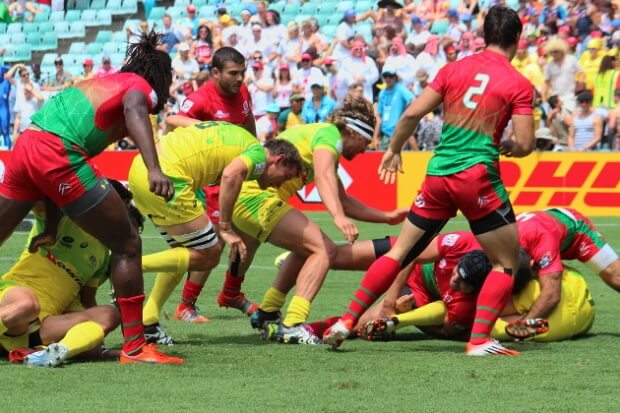The Australian Thunderbolts are building nicely towards Rio.
They started slowly this season. Their first three tournaments of the 2015-16 HSBC World Sevens Series were disappointing, but they made up for it in the last three. They got to the final in Sydney and Las Vegas in consecutive stages, for the first time in six years. Then they had a great result getting third in Vancouver with a green squad—only five of the twelve had more than five caps !!
No, the Aussie Men’s Sevens haven’t won any of the six events, but it is encouraging that they were able to leave some Olympic certainties at home for the American leg, yet still do well. They’ve been rotating their team with one eye on Rio, using 21 players on full or development contracts in the six events. The only ones to miss out are Nick Malouf and Simon Kennewell, who have long-standing injuries.
Nic Cummins (the “Honey Badger”), and Frank Winterstein, who both played XVs in Japan in their domestic season, are late recruits and they will get a chance to press their claims for Rio if their training is satisfactory.
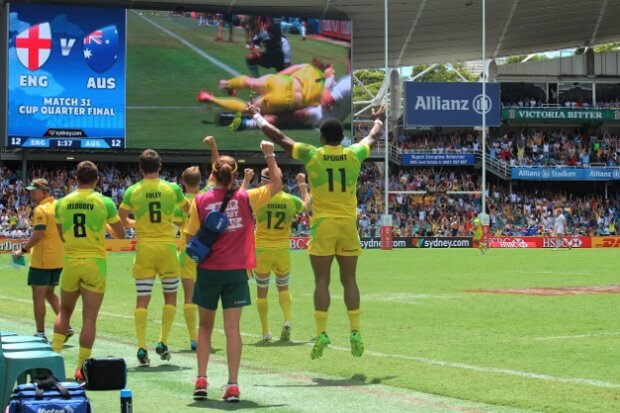
The rivals
With four legs of the HSBC World Series remaining there are three teams clearly in front of the Aussies.
In twelve games against them this season the Thunderbolts have won just three, drawn one and lost eight, which is why they are no higher than fourth favourites for Rio with the bookies.
The top three teams are so close to each other in Series’ points that it doesn’t matter.
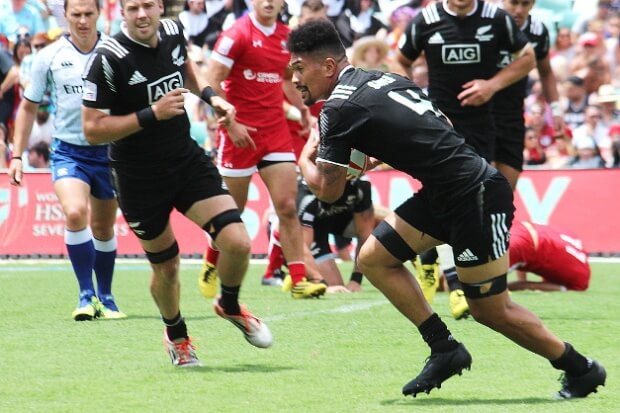
Fiji (106 points) won two tournaments; they showed extravagant talents and scored more tries than anybody else. They were undefeated in Dubai but were surprisingly beaten by France in the quarters in Cape Town.
From then on they finished no worse than fourth though they shamed themselves with poor discipline in Wellington. They looked shaky in pool games in Las Vegas, yet beat the Aussies in the final the following day, though down 0-15 at half-time.
South Africa (105 points) played Sevens like a short game of XVs: they counter-rucked hard, sent shooters out of their tackle line like avengers, and used brawn whenever Sevens needed it. They also had lightning outside speed and woe betide the defensive sweeper who could not cover a long kick through.
The only Cup win for the Blitzbokke was at their home tournament, in Cape Town; their main drawback to winning key games elsewhere was poor discipline, especially tackling too high.
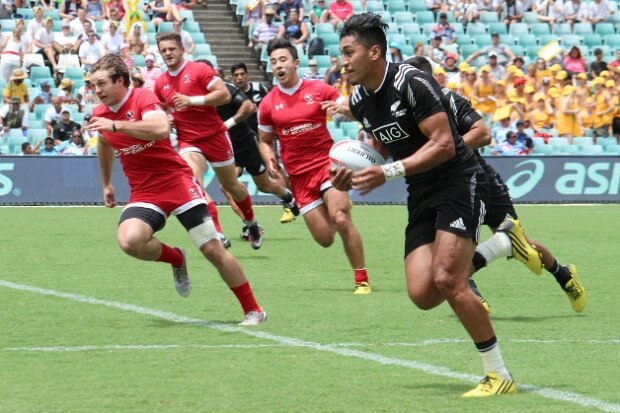
New Zealand (104 points) had savvy Sevens players and although they lacked wide speedsters and played below their standards in three tournaments, they won the other three. The Aussies couldn’t beat them in the three games they played, though others had better luck. The USA beat them twice in Dubai, and Canada got up in a pool game in Cape Town, as did Argentina and the USA in the finals.
The Kiwis came good at home and in Sydney and looked set to take their form to the USA, but had a sensational 0-22 pool loss to Kenya in Las Vegas and ended up contesting the Plate. But they rebounded to win in Vancouver.
Australia (90 points) deserves its fourth place, but has to win key moments in big games to make the podium in Rio. Snapping at their heels for an Olympic medal, should one of the big three stumble, will be Kiwi-killers USA (76 points) and Argentina (69 points).
Old nemesis, England (57 points), headed the Aussies for automatic Olympic qualification last season (for Great Britain), and made the final in the first stage of 2015-16 in December, but it was downhill from there. They had three poor tournaments including a run of nine games without a win.
Although that doesn’t signify much for Rio, Scotland and Wales will be jockeying now for more representatives in the composite team.
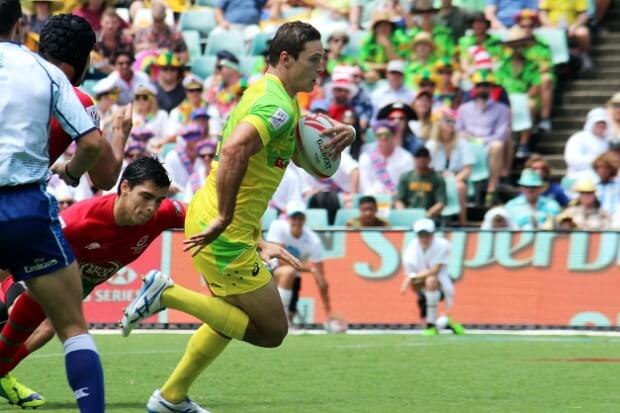
The specials for Rio
Since the HSBC Sevens Series has four legs to go (in Hong Kong, Singapore, Paris and London) and four players have yet to have a run, choosing an Olympic squad would be speculative at this time.
The recruitment of Speight, Cooper and Cummins, has added intrigue to Rio selections but none are on the plane yet in my book – but here are nine I think will be.
Ed Jenkins – the skipper is the epitome of a Sevens forward: having the aerobic fitness of an Aussie Rules player yet being able to handle collisions and perform skills when exhausted. An add-on is the speed of the ex-winger who can still run 40 metres in under five seconds. Ed had a cracking Sydney tournament despite being short of sleep because of the arrival of a baby daughter.
Lewis Holland had two outstanding days in Sydney also, and was probably the best Aussie in Vancouver. He runs to a gap that isn’t there but then you realise there was a gap after all because of his smart identification and sneaky acceleration.
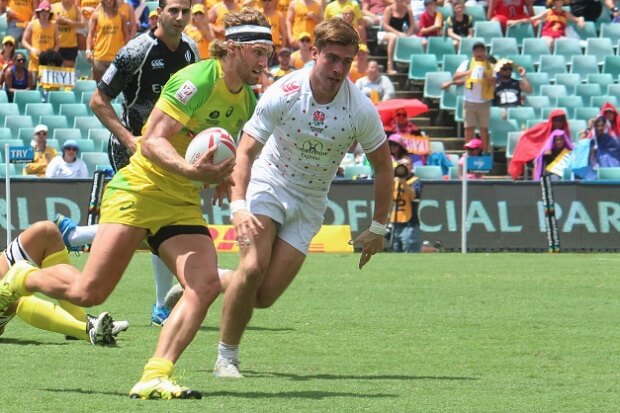
Sam Myers has had a good season and performed admirably in the Las Vegas event, in particular. He is probably the most powerful at breaking tackles in the squad and has enough speed to take advantage of it when through.
Pama Fou is the injured player that coach Andy Friend would most like to get back on the park. The tall, former volley-ball player has a point of difference with his speed and good vertical jump which makes him ideal for recovering the Thunderbolts’ restart kicks—and has more besides. He is sure to be chosen for Rio if he recovers in time from the surgery needed for his Cape Town injury; but this is not certain.
James Stannard is the Aussie who looks least like a Sevens player. The 33-year old “Chuckie” is an old dog for a hard road and is the glue that holds things together on the field. Yet the playmaker is capable of sly brilliancies that startle both spectators and opponents. His kick through to score against South Africa in Sydney with 13 other players on the field watching him in surprise, was not to be missed.
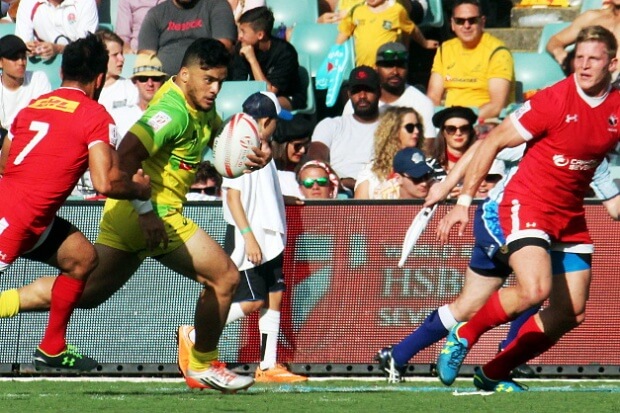
Allan Fa’alava’au was called up for the Aussie Sevens when he was 18 years-old and didn’t impress me much in his early games, though I was a hard judge. He tried to step tacklers to a fault, and not use his supports enough—using only his strengths as young players do.
But now the pocket-rocket is adding value to team mates and isn’t he busting tackles these days? In Las Vegas he was like a jackpot for the team.
Cameron Clark is called “Prince”, which is fitting; for there is some majesty in his style of play. He has good speed off the mark, or can change pace and swerve into gaps with an easy stride.
Like Fa’alava’au, who he played with for Aussie Schools, he was pounced on by the national Sevens’ team, and got his first cap a few months after leaving the school gates at Knox. Superb in open spaces, he scored three tries against Portugal in Sydney: two of them in “Clarkie’s Corner” where all his mates were.
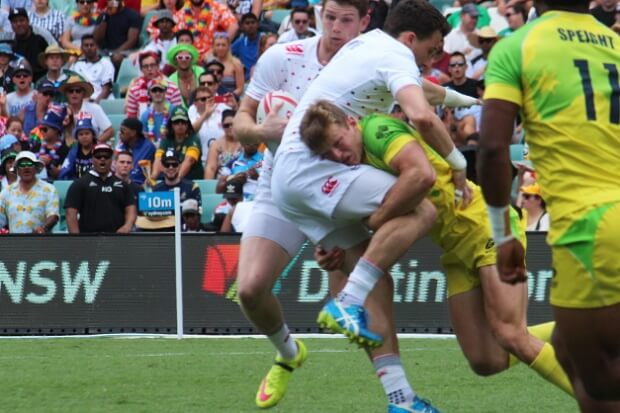
Con Foley is not a spectacular player compared to some of the others but he is probably the most consistent and has a low mistake rate. It doesn’t sound like much but he is Sevens to the bone and a fixer on attack and defence.
Henry Hutchison, who turned 19 recently, has been the Aussie rookie of the season to date. A wunderkind in his school days he is probably the fastest in the team and although some Americans and South Africans are faster, he can at least get between them and a ball kicked through.
He has all the skills required for Sevens and if it were played in a room, he’d be the smartest guy in it.
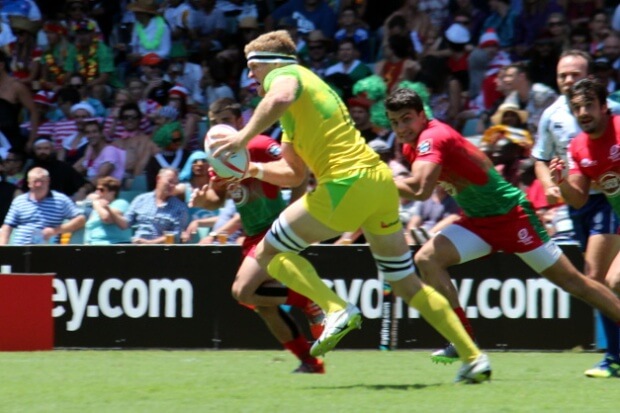
I’m not sure who the other three will be but it would depend on team balance.
They would need an on-baller: Pat McCutcheon would have been a prospect when he joined the squad but his leg injuries are chronic and he is therefore high-risk.
The names of ex-Sevens players Sean McMahon and Liam Gill have been floated in loose talk, but Boyd Killingworth has been sterling in his four games and must be a chance.
If they need another Sam Myers type, Tom Cusack would likely get a seat on the plane ahead of Stephan van de Walt, and they may take Tom Lucas to back up Stannard.
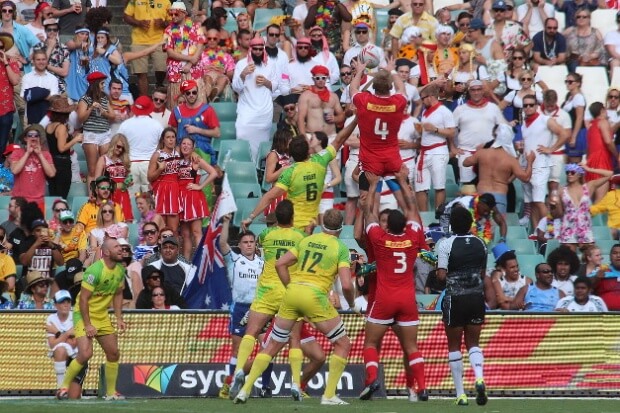
They should get a medal in Rio—but provided they prove consistency and play in the last four events in the HSBC World Sevens Series as they did in the last three stages—and injuries allow.
And if they can get some of those one- or two-percenters that are holding them back from Cup wins, who knows what colour a medal will be if they get one?
Like Sevens’rugby? Read Aussie Women’s Sevens are bookies’ favourites for Rio
All photos by Lee Grant
.

